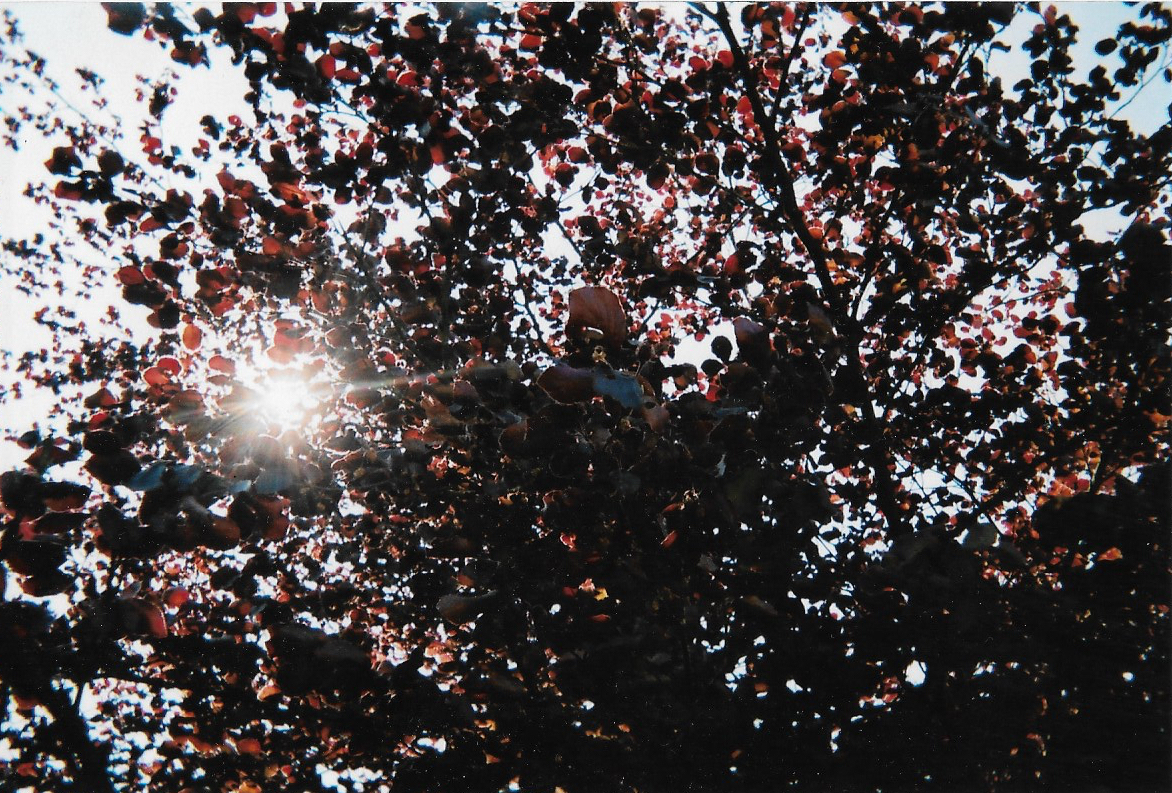
Words and photos by Rebecca Givens
Do you spend too much time looking down at your phone? Rebecca Givens takes a break from her screen. (Unfortunately you do have to read this on a screen, but promise us, you'll take a digital detox after...)
This is my only life. And this is how it really feels.
How much have you stared at your smartphone screen in the last 24 hours?
On average, we spend two hours per day looking down at our devices. After downloading an app earlier this year to monitor my own usage, I was horrified to learn that I was racking up between five and nine hours daily, spent mostly on social media sites and in addition to spending the working day on a computer.
This worried me. I knew I received the most joy from things that occurred away from the world inside my iPhone – walking, running, yoga, painting, travelling – yet my existence had become a dreary ritual of screen-time and sleep, screen-time and sleep. Wake, repeat, wake, repeat.

Why was I using my phone so much and was this having a negative effect on my mental health? I vowed to explore these two questions by embarking on a month-long social media detox. That evening, I deleted the apps from my phone and logged out of accounts on my desktop. The journey had begun.
I used to be a digital consultant, and I’d long promoted the benefits of social media marketing to clients, but for years secretly feared that our day-to-day usage, as individuals in the 21st century was changing the way we were absorbing the world around us. I had begun to observe my own digital consumption and how it was preventing me from being present in my own life. The events I had watched through a screen, the family members I had ignored over dinner, the holiday memories that were retrospectively hazy because I’d been simultaneously lost in my news feed.

On day one of my detox, I took the first and most important step, I admitted addiction. I had developed an unhealthy attachment to various un-real digital realms and this was having a negative effect on the way I was tasting the flavour of real life.
Today, on day 30, I sit here and look back at what this detox has taught me and how it has altered my behaviour. For the last month I have been jotting down these behavioural reflections in a paper journal. That journal represents the start of a brand new chapter, one in which I can reflect on what I missed out on all these years – and what I promise to never take for granted again.
A month-long digital detox was easier than I had imagined. Yes, it was like quitting anything, and to begin with required willpower and training, but after just a few short days, the thought of spending time scrolling through the news of hundreds of strangers sat uneasily with me. After noticing my changing connection to the physical world, I very quickly became accustomed to a life free from social networking, a life free from sharing big occasions with my network. It only took enjoying one of two outings tech-free to remember what life felt like before the impulse to share took over. There’s something satisfying about relishing an experience phone-free, surrounded by a sea of people watching the same thing through their cameras. Sometimes, you can feel like you’re the only one who has stepped outside of The Matrix.

This month was filled with a life-time of memories, tech-free walks and relaxing evenings, doodling memories in my planner, enjoying meaningful conversations with loved ones. The extra hours I gained from not scrolling encouraged me to explore new projects and hobbies. Instead of applying filters, I meditated. Instead of updating my Instagram story, I went for a 20-minute run. Instead of relentlessly snapping photos on my phone, I re-embraced my passion for vintage analogue cameras. Slow technology has taught me that quality is more important that quantity. Now, I take one non-digital snapshot of an experience, refreshing compared to the dozens I would have captured in the past… sifting through, shortlisting, filtering, cropping, editing, posting.
Detached from the social media sphere, my motivations and plans changed, as my enjoyment of events was never driven or shaped by a desire to capture them. I thrived in a mindset of no plans, no phone, no stress and no sharing. I enjoyed entire days not picking up my phone – as I cut the cord to technology I felt a new one attach, to the real moments going on around me that I was able to enjoy entirely. I would reflect on fun occasions weeks later, looking back alone, with a smile, free from checking how many likes or comments that memory had received.
I slowed down, something I had been trying to achieve for years. I realised that a less-digital life meant a less-stressful one. I had to wait to get my photography developed. I got to know the ladies at the local film shop. My relationships improved. I felt myself become more present each day. I completely ditched the concept of ‘instant’.
Admittedly I also came to realise what I did value about having an audience, an online community to talk to and share news with. I vowed to use social media in the future with consideration. Before, I felt sucked in to a life of endless digital consumption, but my detox had taught me to consider my interactions carefully and to appreciate the value of my time.
My biggest learning from this experiment was that the process should always be more important than the result – when it comes to working, creating and most importantly, making personal memories. I had forgotten what the act of ‘creating’ felt like when there wasn’t a final hashtagged post at the end of it. Only when you’re free from this pressure can you really make your best work, immersed and completely lost in the process.
For those of us who have used networking sites for years, habits have crept into our everyday without us even realising it. The fear of missing out, the impulse to compare ourselves to others, the desire to filter and alter our memories, the need to focus on the device in our hands more than the people and things around us. Only by taking a step back can we observe these behaviours and the impact they have on our mental health and the mental health of those around us.

Research shows that 38% of us believe we use our phones too much (that’s around 15.5 million people in the UK), but only 14% of us are making an effort to change this. After this experience, I do believe that just one month media-free can give us social consumers some great valuable insights, lessons that we can then take forward and practice in our future interactions with the digital world, to allow us to live the healthiest and happiest life possible.
I wholeheartedly recommend taking a step back from the un-real world for just a short period of time. One month will fly past in the blink of an eye – like it or not, life moves so incredibly fast, so it’s important to stop and take a proper unfiltered look at it every once in a while before it fades out of the feed forever.
Rebecca Givens is a Warwickshire-based writer, blogger, typewriter poet and analogue photography enthusiast. You can read her blog at theanalogueblogger.com.

